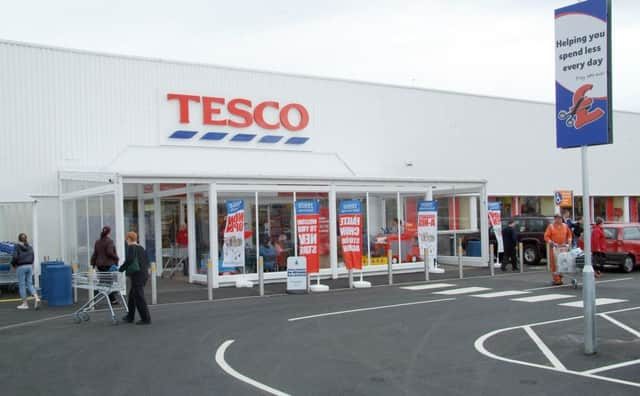Tesco sales growth hits three-year high
This article contains affiliate links. We may earn a small commission on items purchased through this article, but that does not affect our editorial judgement.


Sales at the UK’s biggest supermarket increased by 2.2 per cent over the quarter to 6 November, ahead of overall sales which increased by 0.8 per cent year-on-year for the second consecutive month, according to Kantar Worldpanel.
The discounters grew at their slowest rate since 2011, however Aldi still increased its sales by 10.2 per cent with 547,000 more shoppers visiting over the 12 weeks – a bigger increase in visitor numbers than any other retailer – and Lidl’s sales were up 6.1 per cent.
Advertisement
Hide AdAdvertisement
Hide AdIceland’s sales grew well ahead of the market at 8.3 per cent, increasing its market share to 2.1 per cent, as a high-profile store opening in Clapham, London “clearly targeted at millennials” supported its increasingly upmarket range.
Sales at Sainsbury’s declined by 0.7 per cent, while Asda’s decline slowed slightly to 5 per cent and Morrisons saw total sales fall by 2.4 per cent in line with its smaller number of stores.
Fraser McKevitt, head of retail and consumer insight at Kantar Worldpanel, said: “Tesco’s 2.2 per cent growth is a considerable improvement on the numbers it was delivering this time last year, and indeed in 2014.
“Much of Tesco’s growth has come from more affluent shoppers returning to the store, and average spend per trip is up by 2.1 per cent to £20.69.”
The figures also show that grocery prices have now been falling continuously since September 2014 and are still 0.5 per cent cheaper than last year, although this is a significant reduction in the rate of deflation since this summer.
McKevitt said: “We’re likely to see prices starting to creep up again in December, unless retailers choose Christmas to unleash a new round of price cuts.
“Although it’s tempting to link any potential price increases to Brexit and the devaluation of sterling, it’s worth remembering that deflation has been easing since December last year, well before the referendum.”